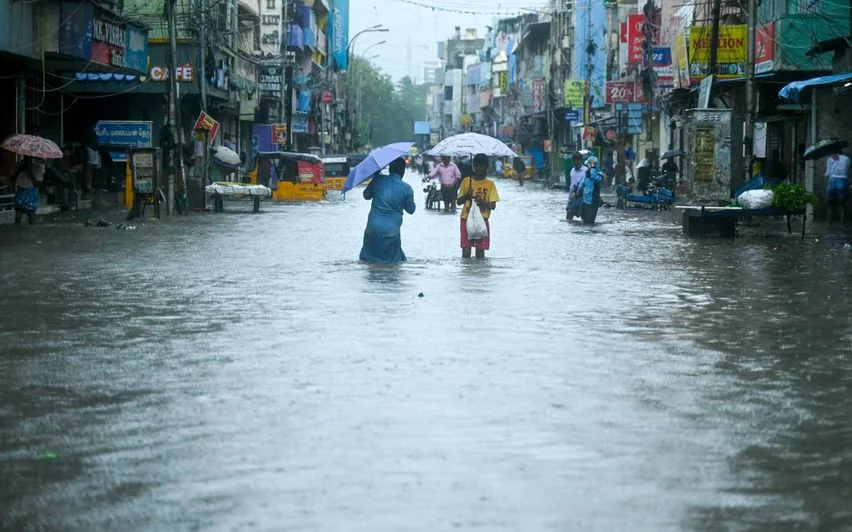Cyclone Fengal has left a trail of destruction across Tamil Nadu and Puducherry, triggering widespread flooding and disrupting normalcy. The Villupuram district has borne the brunt of the cyclone, recording an average rainfall of 49.29 cm in just 24 hours, with Mailam receiving a state-high of 50 cm. Amid the crisis, Tamil Nadu’s Chief Minister is set to visit affected areas in Villupuram on Monday to oversee relief and rehabilitation efforts. Deputy Chief Minister led initial assessments on Sunday, distributing essential supplies to impacted residents and ensuring immediate assistance.
The heavy rainfall has not been confined to Tamil Nadu alone. As the cyclone moves westward, the coastal and Rayalaseema regions of Andhra Pradesh are bracing for intense downpours. The India Meteorological Department (IMD) has sounded alerts, urging residents in vulnerable zones to remain cautious. Villupuram, with its inundated streets and displaced residents, has become the epicentre of relief operations. At the cyclone shelter in Manthavaipudukuppam village, affected families shared their struggles, highlighting the urgent need for long-term flood management strategies.
From a sustainability perspective, the repeated flooding in Tamil Nadu underscores the pressing need for resilient urban infrastructure. With extreme weather events becoming more frequent due to climate change, experts advocate for the development of robust drainage systems, enhanced floodplain zoning, and improved water management practices. Incorporating green infrastructure like rain gardens and permeable pavements could mitigate flood risks while promoting urban sustainability.
Civic authorities are racing against time to restore normalcy. In Villupuram, rehabilitation efforts are being monitored closely, with officials addressing challenges like waterlogging and disrupted connectivity. The incident sheds light on Tamil Nadu’s broader vulnerability to cyclonic storms, emphasising the importance of integrating disaster-resilient planning into urban development. As relief efforts continue, the spotlight remains on the state’s commitment to safeguarding lives and livelihoods amid climatic adversities.


